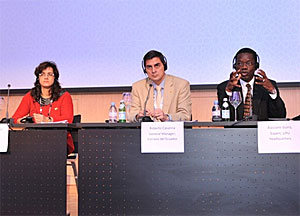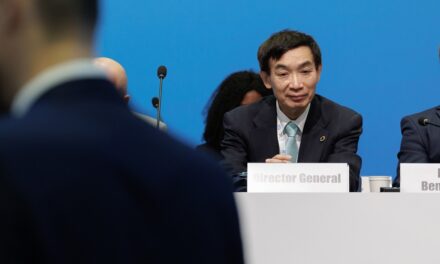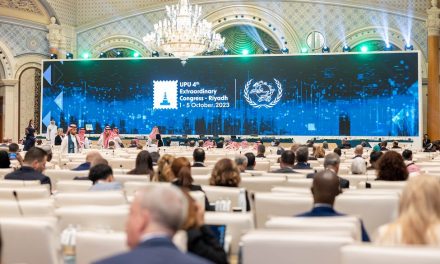
UPU urges governments to use mail to boost trade
The Universal Postal Union is urging national governments to recognise the benefits of using the international postal network to boost trade. The UN-affiliated agency representing the international postal community is currently holding its four-yearly Congress in Doha, Qatar, and last week adopted a resolution urging governments to support particularly smaller businesses to grow their markets abroad.
The UPU, which has 192 countries as members, said following the adoption of the resolution, it will now work on widening programmes like the successful Brazil Post initiative, Exporta Fácil.
The programme offers a simplified export process for small businesses to use the postal system to grow their markets abroad, and last year saw $170m USD worth of goods exported from Brazil.
The UPU has already signed an agreement with the Brazilian government to share the Exporta Facil methodology with all its member countries.
UPU market development expert Alassane Guiro said: “At the UPU level, we have an obligation to act as a centre excellence, to look at the best projects initiated by Posts and see how we can add value at the international level.”
Exporta Fácil

Rose Mary Antunes of the Brazilian ministry of communication, Roberto Cavanna (pictured centre) of Correos del Ecuador, and Alassane Guiro (pictured right) from the UPU at the Doha Congress (Photo: UPU/Nawras Alfawal)
Brazil Post developed its Exporta Fácil with the Brazilian government and customs as part of various measures to help foster exports by small businesses, who would otherwise find the red tape involved in exports prohibitive.
As well as cutting export costs for SMEs, the programme slashes the number of forms to be filled in for exporting items of less than 30kg in weight and $10,000 US dollars in value, a threshold later raised to $50,000 USD. In order to simplify the process, the Post takes on the responsibility to deal with other authorities, such as customs, health and environmental agencies, on behalf of the small businesses.
In Brazil, Exporta Fácil has processed $1.8bn USD worth of goods since 2000, according to Brazil Ministry of Communications advisor Rose Mary Antunes.
“More than 12m businesses in Brazil have used the scheme. It is a very successful project, which can help boost local economies,” she said at Doha last week.
The Exporta Fácil programme has encountered a number of challenges along the way, including difficulties accessing required trade documents, resistance to change in some agencies, and because of the nature of SME exporters as a changeable market, with individual companies often quickly starting up or going out of business, which requires constant promotion of the service.
But on the back of its success in Brazil, Exporta Fácil spread to Uruguay, Peru, Colombia and Ecuador after a pilot launched in late 2007 run by the Integration of Regional Infrastructure in South America, modifying the process to suit local conditions.
And, Argentina, Bolivia and Chile are now in the process of adopting similar schemes, and outside Latin America Serbia has also implemented its own programme based on Brazil’s project.
The Doha Congress heard that the programme has been very successful in Ecuador over the past 11 months, with Ecuador Post’s general manager Roberto Cavanna stating that more than 5,000 exports, worth $1m USD have been made through the programme so far.
“The results are extraordinary and the government supports the project,” he said.












